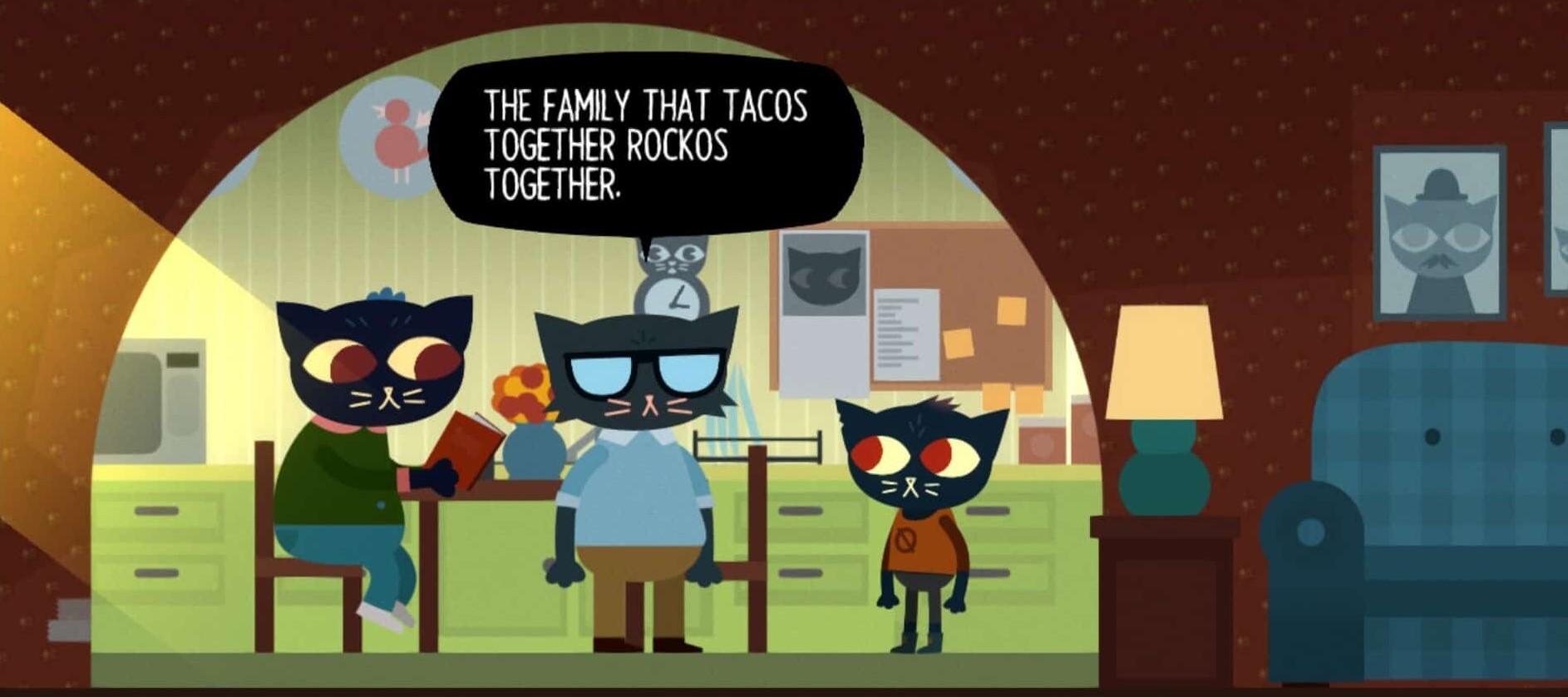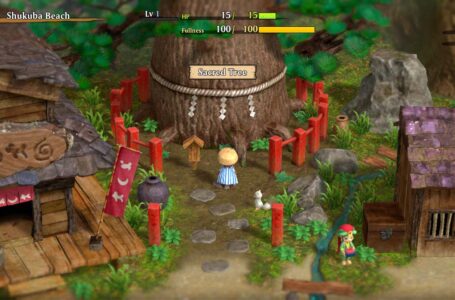Why cosy (or wholesome) gaming is here to stay
You may have noticed in recent years that more and more video-game related content is taking a particular interest in “cosiness”. What I thought of as a passing fad only a few months ago has exploded in popularity, transforming from vague buzz-word to established category in an instant.
So what is cosy gaming? Certainly not a genre, if you’ll allow me to be a stickler for a second. Take Animal Crossing: New Horizons for example – a cosier game you could not hope to find. Primarily, though, Animal Crossing is a social simulation game, which itself is an offshoot of life simulation games – a genre which also includes Yakuza and Façade, two decidedly non-cosy titles. Or are they?

Cosiness as we know it now doesn’t come from a certain mechanic or convention – it comes from vibes. Games can often be stressful – we’ve all wanted to bounce a controller off a nearby wall at some point in our lives. Cosy gaming removes those stressors, leaving the player to enjoy relaxed, non-urgent gameplay.
Of course, what’s stressful to me may not be so to you, and vice versa. For example, I had to stop playing New Horizons because the pressure of creating the perfect island was actually burning me out (true story, unfortunately!), but I had no such issue with Hades, the intense and often punishing rogue-like which I played every evening for a year straight to blow off steam. If you feel cosy playing it, it’s a cosy game – simple as.

This hasn’t stopped players and developers alike in trying to carve out a space for cosiness in the gaming world. Many have cited self-expression and personalisation as being key to cosy gaming, as well as solid life sim options such as romance routes or a general focus on spending time with NPCs. Others have also cited that minimal combat or violence are key to the cosy game, which makes me think cosiness is being mistaken for wholesomeness in some instances.
I often relax and unwind to “violent” video games. The aforementioned Hades actually includes a lot of the conventions of cosy gaming: you can personalise your home, talk to your friends, fall in love – you even get to pet Cerberus as often as you like. You also beat the shit out of your friends on a daily basis, and they all love it, trust me. Is it still violence when the characters can never really die? – but that’s a question for another article.

Wholesomeness, on the other hand, is associated with morality, purity, innocence. Though usually conflated, I think there is some nuance to be found between the two terms. No ethical conundrums are to be found in a wholesome game – and not every game needs them, either! To be honest, not many games are good at them in the first place. But some so-called cosy titles are given a certain leeway to delve into more unsavoury topics – sex, drugs, cruelty, and all that other fun stuff – on the basis that it’ll all turn out OK in the end.
Take Night in the Woods, for example, a definitively cosy game that nonetheless deals with depersonalisation, economic stagnation, and – yes – violence. Even if it is not much seen in the actual gameplay, the plot of the game revolves around the protagonist coming to terms with the violent actions she has committed. Though the all-important vibe of the game is (for the most part) calm and collected, an ominous undercurrent runs through the entirety of Night in the Woods. It’s not a difficult game to play per-se, but the themes that are gently presented to the player throughout the narrative aren’t exactly sanitised, either. If the game is wholesome, it’s because the conflicts of the narrative are resolved in a healthy, hopeful way. Wholesomeness entails the absence or removal of conflict.

It seems to be a common consensus that cosy/wholesome games should not be difficult – time consuming, maybe, but never to the point of frustration. Narratives should be earnest, with minimal yucky stuff, and must always result in a happy ending. It’s an increasingly narrow definition to follow, and I think if we were to really look at the games being championed in this category, we would find that few titles actually fit the bill.
So where did cosy/wholesome gaming come from?
COVID, probably. You were thinking it too. The pandemic left a lot of us listless and looking for an escape, and this is where (I think) the cosy phenomenon truly started to take root. Not that games weren’t being branded as cosy or wholesome before then, but it seems that the appetite for that flavour of game has turned ravenous post-2020. Perhaps it didn’t matter if these games faced us with some bleakness from time to time, as long as it was easily digestible.

What I didn’t realise until looking into it a little further is that the cosy phenomenon is by no means new. Cosy mystery fiction appeared sometime in the late 20th century as readers looked to return to the Golden Age of detective fiction and away from the darker, grittier outlook the genre had begun to pivot towards. What’s more, the term “cosy catastrophe” was coined by Brian Aldiss in his book Billion Year Spree, a history of the science fiction genre published in 1973, to describe post-apocalyptic fiction that focuses on the upsides of world-ending events. It’s cosiness all the way down!
Overall, though, I think the sentiment is pretty much the same. Cosiness is a light-hearted take on established narrative conventions, toning down any upsetting, shocking or dark material that may be associated with them. You can enjoy an interesting story with interesting conflict, but you won’t be forced to look evil in the eye. Wholesomeness takes this a step further – conflict in general is minimal, with the main focus being on the good you can do for yourself and your community.
What’s the future of cosy gaming?
Now that the term has entered the mainstream, we can expect more and more games to be produced with the express purpose of cosiness. In fact, just last month the Wholesome Direct Indie Showcase announced over 70 upcoming indie games, from life sims to puzzle platformers. If cosy isn’t a game genre now, it certainly will be soon.
I just worry that cosiness will be used as an excuse to avoid creating games that involve difficult subjects altogether, despite the foundations of this category being comprised of layered and thought-provoking games. I worry that “cosy” and “wholesome” are primarily marketing buzzwords that are encouraging insular gaming communities that don’t dare to try what else is out there. A hill that I will die on is that video games are art, and deserve to be treated as such – and art can often be uncomfortable, disquieting, even scary.
I’m genuinely looking forward to a new wave of games that champion the indomitable human spirit; as much as I gripe, we all need a bit of wholesomeness in our lives. But I think it’s important to be open to all different kinds of art, including the types that may seem a bit off-putting to begin with – and cosiness can be found in all sorts of unlikely places.
Join The Discussion
Rice Digital Discord
Rice Digital Twitter
Rice Digital Facebook
Or write us a letter for the Rice Digital Friday Letters Page by clicking here!
Disclosure: Some links in this article may be affiliate links, which means we may earn a small commission if you make a purchase after clicking on them. This is at no additional cost to you and helps support Rice Digital!
- Anime to look out for this October - September 29, 2023
- Netflix original anime: the good, the bad and the ugly - September 28, 2023
- Post-apocalyptic visual novel Archetype Arcadia launches on October 24th, with pre-order discount available for PlayStation and Switch - September 26, 2023






